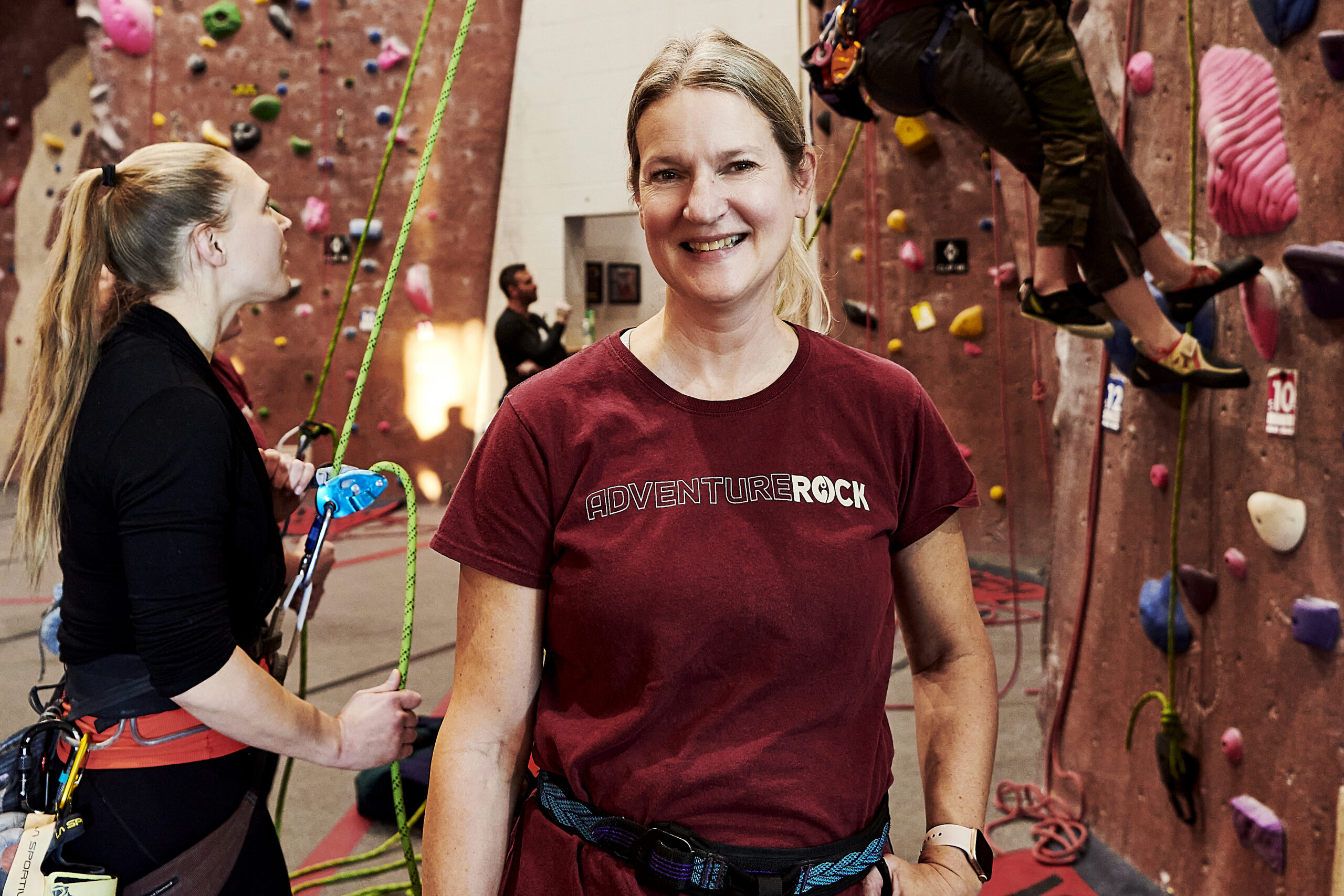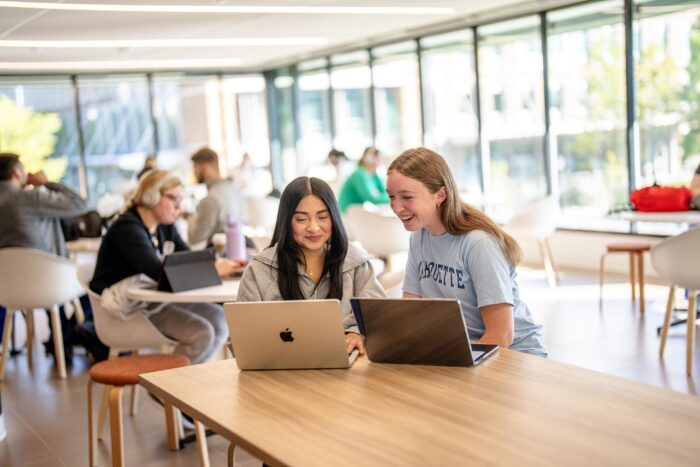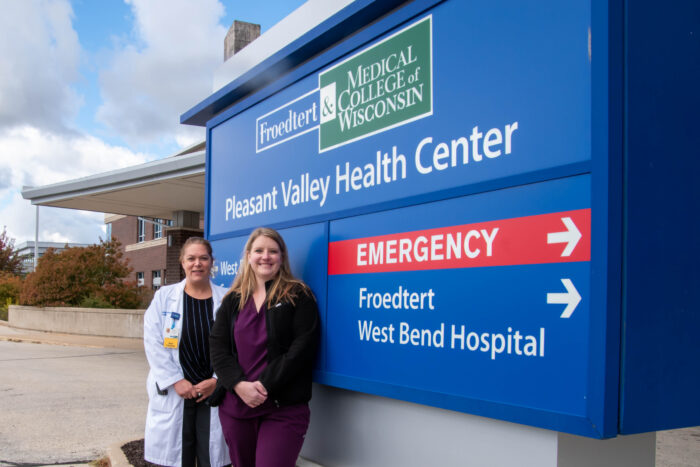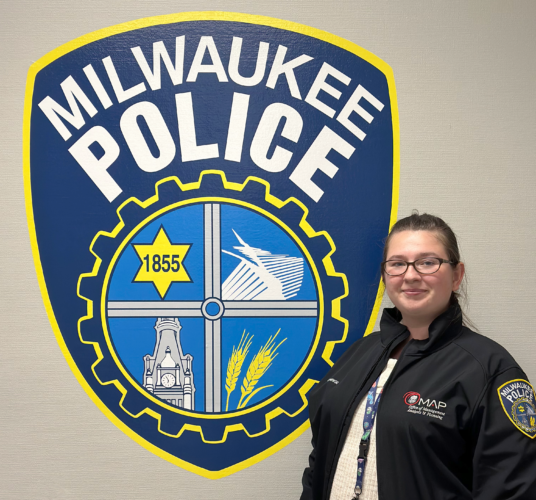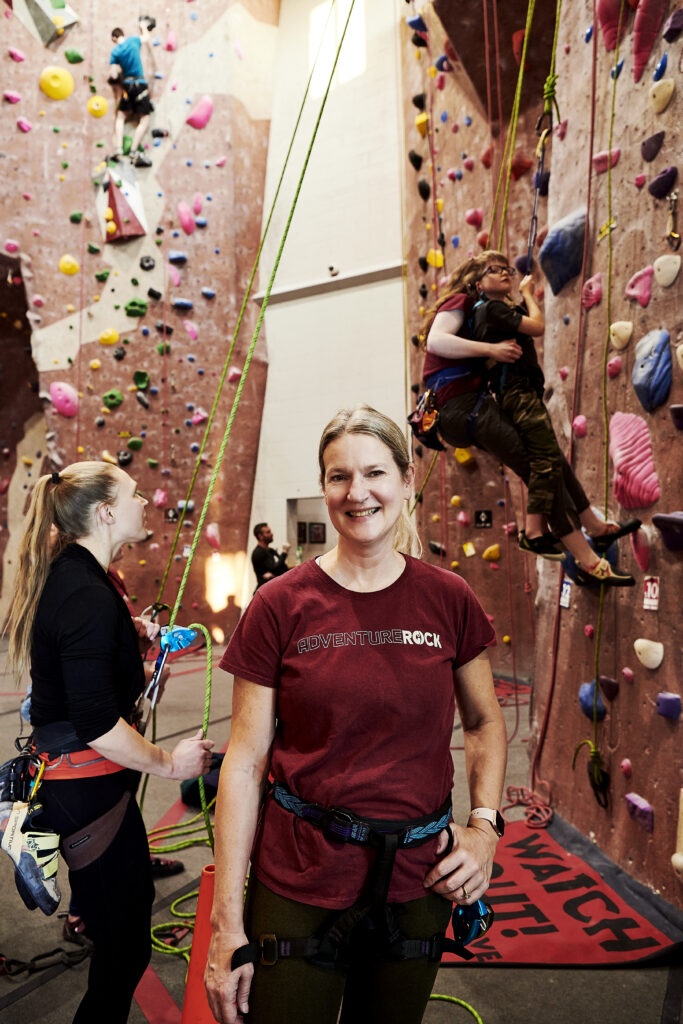
This story is a part of a larger series about College of Health Sciences faculty’s work outside the walls of the university and in the Milwaukee community. Read the full series here.
At the Adventure Rock climbing gym in Brookfield, Wisconsin, a climber moves steadily up the wall, feeling for hand- and footholds as he unlocks the sequence of moves that will take him to the top. On each side, roped-up assistants provide encouragement, while below, Dr. Tina Stoeckmann keeps a hand on the rope as she belays.
These climb nights are a regular outing for the Marquette Adaptive Abilities Club, which helps people of all abilities rock climb, water ski, kayak and scuba dive. Stoeckmann, who helped found the club in 2014, is a clinical professor in the Physical Therapy Department and a licensed physical therapist, specializing in neurologic disorders and recovery. These conditions can sap physical strength, coordination and balance, and make even simple activities feel out of reach.
That’s an assumption Stoeckmann says should be challenged. Many activities, even those that can feel extreme, are accessible to people with disabilities.
People “don’t know that they could get back to rock climbing, or they actually could go scuba diving,” she says. Sometimes all it takes “is just a couple hands to support, or encouragement for people that are nervous.”
The Adaptive Abilities Club partners with local organizations, like Illinois-based Diveheart, and relies on student volunteers who learn to support participants as they swoop down a ski slope or slip underwater. With more than 40 active members, the club now includes water skiing and kayaking, in addition to climbing and diving, among the activities it promotes.
Just one year after its founding, the Adaptive Abilities Club received the 2015 Rev. Robert A. Wild, S.J., Spirit of Marquette Award, which recognizes a student organization that best exemplifies the development of leadership expressed in service to others.
For physical therapists in training, it can be powerful to realize they have much more to offer.
“It’s not always about walking. It’s about getting back to doing things people want to do,” Stoeckmann says. “It’s really important for their therapists to say there is life after amputation or life after a brain injury or a stroke.”
